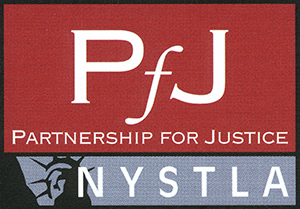Wrongful Death Suits and the Tax Implications
Posted on June 21st, 2019 by Oddo & Babat, P.C.
Personal Injury Lawyer in New York, NY
Generally speaking, damages from a wrongful death suit are not taxable. This means that the defendant(s) ordered to pay cannot take a deduction on the damages. Due to a number of exceptions that may apply, a wrongful death award also has many tax implications for the plaintiffs who receive the damages.
Compensatory Versus Punitive Damages
With few exceptions, if you receive a wrongful death award that compensates you for your loss, these damages are not taxable. These include economic damages, such as lost income or loss of inheritance, but it also applies to noneconomic damages, such as loss of companionship or consortium.
Punitive damages, however, are an entirely different matter. These are intended as a punishment for the responsible party and a deterrent against future negligence or misconduct. Though you and your family may receive the benefit, it is not awarded to you as compensation for what you have lost. Therefore, you are generally required to pay income taxes on any punitive damages that you may receive as part of your wrongful death case. When you file your federal tax return, you will find a space on the form for you to enter the amount of your punitive damages award.
Income Versus Estate Taxes
Generally speaking, you are not required to pay income taxes on compensatory wrongful death damages. However, if the amount of compensatory damages you receive is enough to push the value of your loved one’s estate over the federal threshold, which amounts to multi-millions of dollars, the Internal Revenue Service may assess an estate tax. It will then be necessary for the executor or administrator of the estate to pay that tax, which in some cases may reduce the inheritance that the decedent’s heirs would otherwise receive. However, this depends somewhat upon the specific provisions of the will.
Other Exceptions
There is one more notable exception to the rule that compensatory damages in a wrongful death suit are not taxable. If the event that eventually caused your loved one’s death incurred medical bills and you took tax deductions on those expenses, you must report a commensurate amount of your compensatory damages as income on your tax return. However, this exception only applies if you itemized your deductions. It does not apply if you took the standard deduction.
The emotions provoked by a wrongful death make it easy to become confused and overwhelmed by the legal process of obtaining damages. Attorneys understand this and take great care to guide you gently through the process. Find out more about how we may be able to assist you by contacting a personal injury lawyer in New York, NY today.
Contact , Oddo & Babat, for their insight into personal injury claims and tax implications for a wrongful death case.


 I consulted with David the first time a couple of years ago on a serious matter that affected a very close member of my family. Not expecting a good experience from this serious situation coupled with an attorney consultation, the entire thing surprised me as it was pleasant, professional, and completely successful. We found him clear, direct, generous and extremely knowledgeable throughout the process. I give my very strongest recommendation
I consulted with David the first time a couple of years ago on a serious matter that affected a very close member of my family. Not expecting a good experience from this serious situation coupled with an attorney consultation, the entire thing surprised me as it was pleasant, professional, and completely successful. We found him clear, direct, generous and extremely knowledgeable throughout the process. I give my very strongest recommendation








